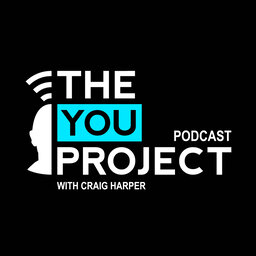#1851 Temporary Psychopaths - David Gillespie
According to David Gillespie (and some very reliable research studies), good old-fashioned Paracetamol (Panamax, Panadol, Tylenol) can create the interesting 'side effect' of making people temporarily less empathetic or as DG suggests, “temporary psychopaths!” We also chat about why (and how) Al might soon make 'The You Project' (or at least, the host) redundant. As always this was super interesting.
 The You Project
The You Project


